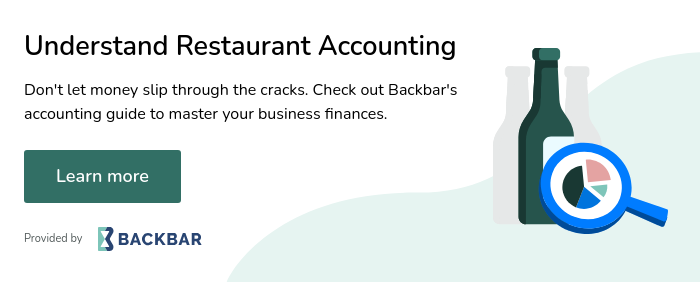Are you a restaurant or bar owner? If so, it's never too early to start preparing for tax season. Timely preparation of tax documents for your business is crucial to maintain compliance with tax laws and avoid penalties. By promptly gathering and organizing all necessary financial records, receipts, and expense reports, you can ensure a smooth and efficient tax filing process.
This not only helps you meet the deadlines set by the IRS but also allows you to take advantage of any tax benefits available to your business. In this blog, we will provide you with essential tips and steps to help you get ready for tax season, ensuring a stress-free and successful filing process. So, let's dive in and make tax season a breeze for your restaurant or bar business!
Why It's Important To Prepare Your Tax Documents As Soon As Possible?
Timely preparation of tax documents for your restaurant is crucial to ensure compliance with tax laws and avoid penalties.
Preparing your restaurant's tax documents promptly is of utmost importance to maintain the financial health and legal compliance of your business. By promptly gathering and organizing all necessary financial records, receipts, and expense reports, you can ensure a smooth and efficient tax filing process. This allows you to meet the deadlines set by the Internal Revenue Service (IRS) and avoid potential penalties or fines that may arise from late or inaccurate filings.
Keeping up with tax obligations is essential for any restaurant owner, as failure to do so can lead to serious consequences. By promptly preparing your tax documents, you can accurately report your income, deductions, and credits, ensuring you take advantage of any tax benefits available to your business. Additionally, early preparation gives you ample time to review and double-check your records, minimizing the risk of errors or omissions that could trigger an audit or further scrutiny from tax authorities.
Preparing your restaurant's tax documents early allows you to effectively plan your financial strategies for the year ahead. By understanding your tax obligations early on, you can make informed decisions regarding your business's budgeting, expenses, and potential investments. This proactive approach not only helps you avoid any last-minute rush or stress related to tax filings but also provides you with a clear financial overview to guide your decision-making process throughout the year.
That's why timely preparation of tax documents for your restaurant is crucial to ensure compliance with tax laws, avoid penalties, and take advantage of available tax benefits. By organizing your financial records promptly, you can streamline the tax filing process, minimize the risk of errors, and gain valuable insights to drive your business's financial success.
Tips to Get Ready for Tax Season
Preparing your restaurant or bar accounts for your business taxes can seem like a daunting task, but with the right approach, it doesn't have to be. Taking the time to organize your financial records and understand the tax requirements specific to your industry can save you both time and money in the long run. Here are some essential steps to help you get started:
1. Gather all your financial documents: Begin by collecting all your receipts, invoices, bank statements, and any other relevant financial records. This will provide a clear picture of your business income and expenses throughout the year.
2. Categorize your expenses: Create categories for different types of expenses, such as food and beverage costs, employee wages, rent, utilities, and equipment purchases. Properly categorizing your expenses will make it easier to calculate deductions and ensure you don't miss any eligible tax write-offs.
3. Reconcile your accounts: Review your bank and credit card statements to ensure all transactions are accurately recorded in your accounting system. This step helps identify any discrepancies or missing entries that could affect your tax calculations.
4. Calculate your sales tax liability: If your restaurant or bar is required to collect and remit sales tax, make sure you have accurately calculated and recorded the amount owed. Consult with a tax professional or use accounting software to streamline this process and avoid any compliance issues.
5. Determine your eligible deductions: Familiarize yourself with the tax deductions available to restaurants and bars, such as equipment purchases, marketing expenses, and employee benefits. Keep track of these expenses throughout the year to maximize your deductions and minimize your tax liability.
6. Consider hiring a tax professional: If you're unsure about the tax laws or find the process overwhelming, it may be beneficial to consult with a tax professional who specializes in the restaurant or bar industry. They can help ensure you're taking advantage of all available deductions and properly filing your taxes.
7. Stay organized throughout the year: Implement a system for consistently tracking your income and expenses as they occur. This could involve using accounting software, hiring a bookkeeper, or regularly reviewing and updating your records. Staying organized year-round will save you time and stress when tax season rolls around.
By following these steps and staying proactive in managing your restaurant or bar accounts, you'll be well-prepared to tackle your business taxes. Remember, seeking professional advice when needed and maintaining accurate records is vital for a smooth and successful tax filing process.
%20BLANK%20(10).jpg?height=400&name=Blog%20Header%20(smaller)%20BLANK%20(10).jpg)


